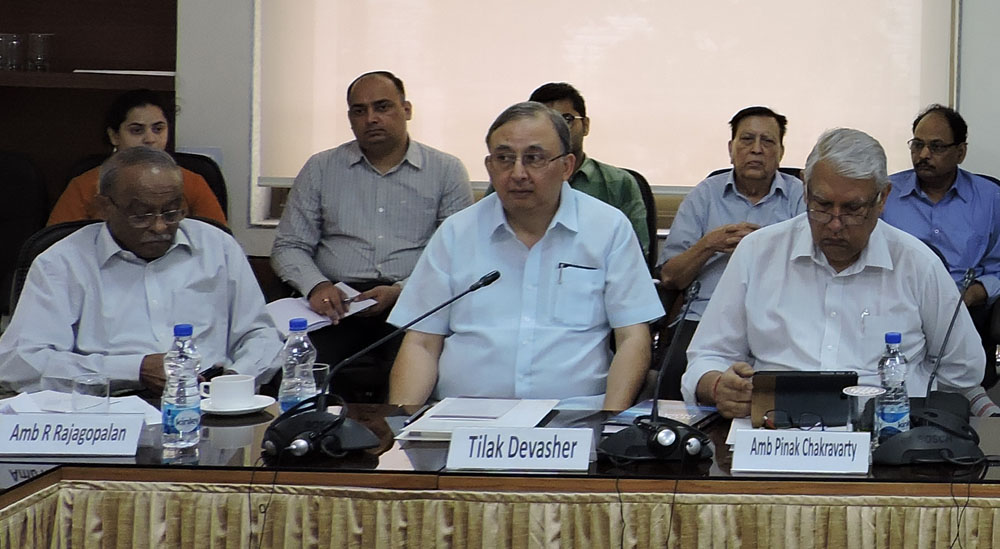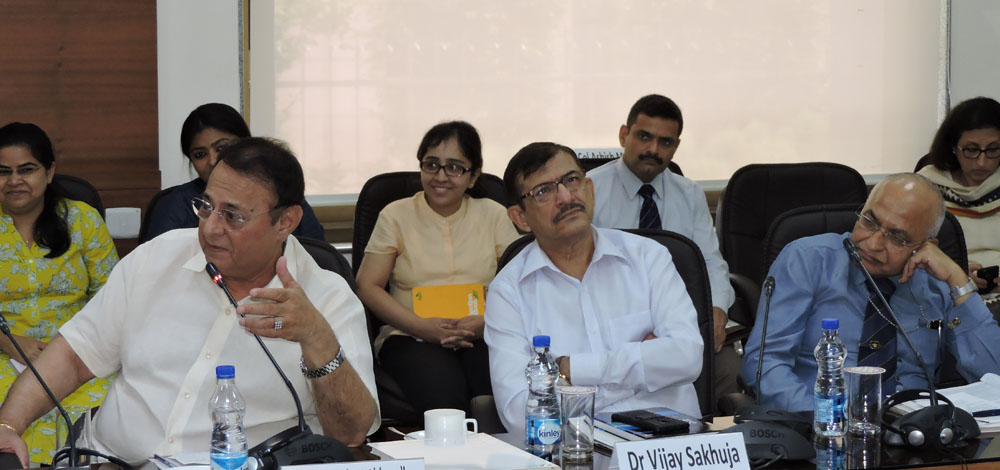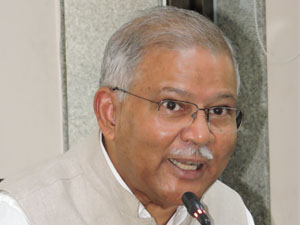Amb Ashok Kantha, India’s former Ambassador to China, led a round table session on ‘China’s Emerging Global and Regional Strategy’ at the Vivekananda International Foundation (VIF) on 24 Aug 2017. India’s former Foreign Secretary Amb Kanwal Sibal, Air Marshal PS Ahluwalia (retd), Lt Gen AK Ahuja (retd), Lt Gen Ravi Sawhney (retd) and Mr. CD Sahay, among others heavyweights in India’s strategic community, participated in the discussions. General NC Vij, Director, VIF, suitably created an environment for the discussion with his brief opening remarks, which highlighted, among other things, the growing uncertainties in the present world order, defined and dictated increasingly by the changing behavior of major world powers, especially the United States and China. Whereas, China, buoyed by its economic success and military prowess, is seeking a greater share of world power, the United States, on the other hand, is increasingly constrained by an inward-looking approach. China’s abrasive and threatening posturing on territorial disputes is a major threat to the region’s peace and security. The recent military stand-off between China and India at Dokalam i.e. the tri-junction between China, India and Bhutan, broadly reflects China’s desire to unilaterally change the status quo on disputed borders in its own favour through coercive means. A former Chief of the Indian Army, General NC Vij, however, praised highly India’s firm and restrained response to China’s saber-rattling over the Dokalam standoff.
Following the Director’s opening remarks, Amb Ashok Kantha made out a broad and fair assessment of China’s grand strategy, it’s rise and emerging regional and global posture, the China factor in India’s neighbourhood, including the Indian Ocean Region, and the broad spectrum of future bilateral relationship between China and India, especially India’s response options. The former Ambassador to China stressed that China’s grand strategy is broadly reflected in its desire to become the world’s numero uno power to a pre-defined timeline. Part of that strategy lies in creating China-centric institutions around the world. Most importantly, the Ambassador asserted that the rise of China is now in a crucial phase where it perceives a window of opportunity, given the perceived drift in the US foreign policy under President Trump. The Dokalam standoff between China and India which lasted for almost two months broadly reflects China’s urgency to take strategic advantage against India.

China’s Belt and Road initiative, China-Pakistan nexus and China’s strategic dominance of the Indian Ocean Region through building up of ports and bases were among other highlights of Amb Kantha’s presentation. With the Dokalam standoff still playing out in the background, the Q&A session focused on finding out appropriate responses to China’s continued provocations at India’s borders. The consensus view among experts suggested a diplomatic approach to the crises as these occur. However, they also converged on a view that pendency of a permanent border agreement between China and India mandates India to remain vigilant and militarily prepared to face any potential flare up on the border in future.









